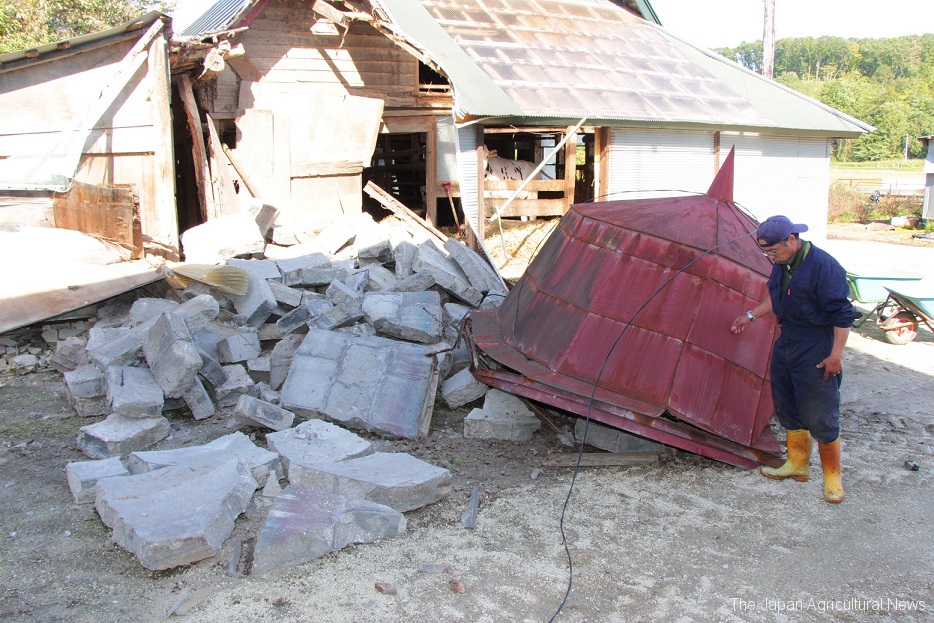
Damaged grain silo and other facilities are seen on Sept. 6 in a dairy farm in Atsuma, Hokkaido, hit hard by a powerful earthquake.
HOKKAIDO, Sept. 7 – A magnitude 6.7 earthquake, which registered up to 7 on the 7-point Japanese seismic intensity scale, hit the northernmost prefecture of Hokkaido on Sept. 6 at 3:07 a.m.
The earthquake, with its epicenter in the Iburi region in southwestern Hokkaido, triggered massive landslides and damaged houses. The death toll rose to 35 (updated as of 8 p.m. Sept. 8), out of which 31 were confirmed at the worst-hit mountainous town of Atsuma, and one each in Mukawa, Shinhidaka, Tomakomai and the prefectural capital of Sapporo, according to the Hokkaido Prefectural Government.
Some 2.95 million households throughout the prefecture was temporarily left without power, as all thermal power stations automatically stopped following the earthquake.
In the prefecture known as a major dairy farming region, farmers are asking for fuel and water supply, fearing the power cut could lead to deterioration of their cattle’s health and threaten milk supply in the nation.
A 64-year-old dairy farmer of Atsuma said because of the lack of electricity he couldn’t use milking machines on around 30 cows he owns for two days. “Both electricity and water supplies stopped. My cows could die,” he said, adding that it was impossible for him and his wife to milk them by hand.
He said he did not feed the cows out of fear that feeding and not milking them would make them suffer more from swollen udders. He became more impatient as he continued to hear the hungry and thirsty cows’ voices.
When power supply is cut, dairy farmers need to use their own power generators to operate milking machines or milk their cows by hand to prevent them from developing mastitis or other diseases. But unless dairy factories which had been suspended due to the blackout don’t resume their operation, farmers cannot ship the milk.
JA Tomakomai-Kouiki, an agricultural cooperative in Atsuma, obtained power generators and shared them with dairy farmers, while sending water to the farming towns of Abira and Atsuma where the water supply was cut.
The farm cooperative’s warehouses in Atsuma that store potatoes, pumpkins and processed wheat grains were rocked by the quake, with piles of containers tumbled down and farm produce scattered all over.
Some 900 containers of potatoes, each weighing 600 kg, collapsed at one of the storehouses, damaging sorting machines. Doors of some warehouses couldn’t be opened because the power was cut off.

